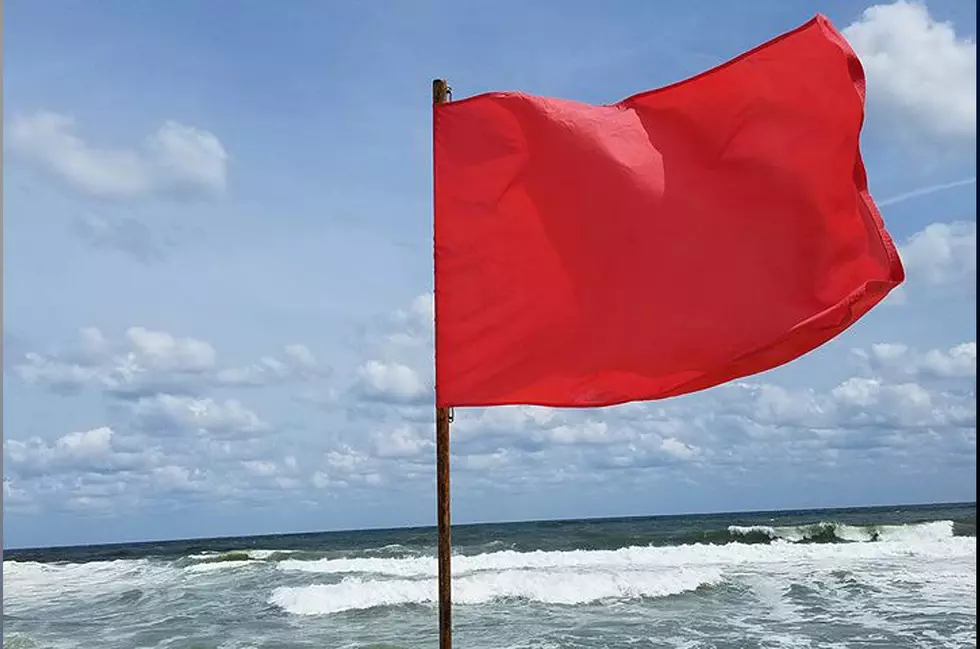
The longest, most intense heat waves ever recorded in NJ
What is a heat wave?
Yes, it gets hot in New Jersey every single summer.
But sometimes, heat and humidity get uncomfortable. Unbearable. Even dangerous.
When unrelenting heat settles in day after day after day, that is a heat wave. And that is when we have to ring alarm bells, as the weather becomes hazardous to human health. (Along with animals, infrastructure, utilities, plantlife, and more.)
You have to take it seriously when it gets unseasonably, unreasonably hot. Especially during any strenuous outdoor activity during the hottest part of the day.
Heat is the #1 cause of weather-related fatalities in the United States. And it's not even close.
Believe it or not, there is no "official" ubiquitous definition of a heat wave — it is a regional thing. Here in the Northeast, a heat wave is widely regarded as three consecutive days of 90+ degree temperatures at a given weather station.
I have personally taken that definition a step further to create what I call the Jersey heat wave — three consecutive days of 90+ degree temperatures anywhere in the state. That statistic not only captures the geographic and climatic variability across the state, but also mitigates an isolated thunderstorm breaking an otherwise long heat wave.

We are halfway through another Jersey heat wave right now. With many hot spells coming up throughout the summer. How does this heat wave compare to others in the past? Let's dig into some fun climatology statistics.
Longest Jersey Heat Waves
I did an analysis using the Applied Climate Information System database hosted by the Regional Climate Centers. I was looking for the longest strings of days with a maximum temperature of 90+ degrees at any weather station in NJ.
Using that criteria, since New Jersey's earliest reliable daily weather records in the 1890s, there have been a total of 1,035 Jersey heat waves. Just under 8 per year. So it is not an unusual occurrence. (But that doesn't mean we have to like the heat and humidity.)
And, drumroll please... The longest Jersey heat wave on record lasted for a total of... 52 days. From June 17 to August 7, during the ferociously hot summer of 1993.
Here is the top ten longest Jersey heat waves, all of which lasted over a month:
1.) 52 days in 1993
2.) 43 days in 1944
3.) 42 days in 1983
4.) 38 days in 1943
5.) 37 days in 1932
6.) 34 days in 2011
6.) 34 days in 1997
6.) 34 days in 1939
9.) 33 days in 2022
10.) 31 days in 1955
It is interesting to note that only one of those hot streaks occurred in the last decade, in 2022 from July 12 and August 13. That one is especially notable because the weather station at Newark Liberty International Airport recorded five consecutive days of 100+ degree temperatures from July 20 to July 24. (I still have serious doubts about the accuracy of that streak.)
Longest June Jersey Heat Waves
Even if we look at our current 8+ day streak of 90+ degree temperatures in terms of June heat waves, it is far from a record.
That title goes to June 12-29, 1957 — 18 June days in a row in the 90s.
Heat waves do occur outside of the summer season, although they are rarer and generally shorter in duration. There are only four calendar months in which a heat wave has never occurred in New Jersey: January, February, November, and December.
Number of 90-Degree Days
As another benchmark of summer heat, we can look at the total number of 90+ degree days. (Non-consecutive, this time.) Again, this is using my "statewide" methodology — if any weather station in New Jersey hit 90+ degrees, it counts here.
There is actually a lot of variability here, with total 90-degree days ranging from a minimum 32 in 1907 to the record 91 in 1980.
Here is the entire top ten:
1.) 91 days in 1980
2.) 90 days in 2010
2.) 90 days in 1998
4.) 89 days in 1991
5.) 88 days in 1993
5.) 88 days in 1941
7.) 85 days in 1994
7.) 85 days in 1959
9.) 85 days in 1947
10.) 84 days in 1987
10.) 84 days in 1983
Lots of very hot years in the 1980s and 1990s.
Last year, 2023, we had a total of 58 90-degree days. This year, we have already tallied 14, with an additional 4 in the forecast through early next week. 18 and counting, with the hottest months of the year (July and August) still to come.
The overall average number of 90-degree days from 1991 to 2020 (standard climate period) is about 69. So that is our annual benchmark for a "hot" vs. "not hot" year.
How hot does it get in New Jersey?
The hottest temperature ever officially recorded and confirmed in New Jersey occurred on July 10, 1936 in Runyon, a neighborhood in Old Bridge, Middlesex County. The thermometer hit 110 degrees.
That nationwide heat wave occurred during the Great Depression and the Dust Bowl era. The death toll reportedly rose about 5,000 with massive crop loss reported too.
While the danger of a similar extreme heat wave in the modern day would be mitigated by advanced forecasts, widespread air conditioning and refrigeration, and crop irrigation, it is still important to take summertime heat seriously.
Stay cool. Stay hydrated. Stay safe.
LOOK: The most extreme temperatures in the history of every state
Gallery Credit: Anuradha Varanasi
Dan Zarrow is Chief Meteorologist for Townsquare Media New Jersey. Check out Dan's weather blog or follow him on Facebook for your latest weather forecast updates.
Heat Wave Safety Information
Fun Indoor Activities to do During a Heat Wave
Gallery Credit: Stephanie Crist
More From New Jersey 101.5 FM









